
May 09, 2019 6 min read
It's spring and that means we are getting our hands dirty in the garden and just waiting anxiously for our flowers to bloom and grow. Anyone anxiously waiting for amazing veggies and fruits that your garden is going to give you this year? Gardening seems like it takes so much time, some failure and a lot of trial and error. Let's admit it, we've all killed a plant or two.
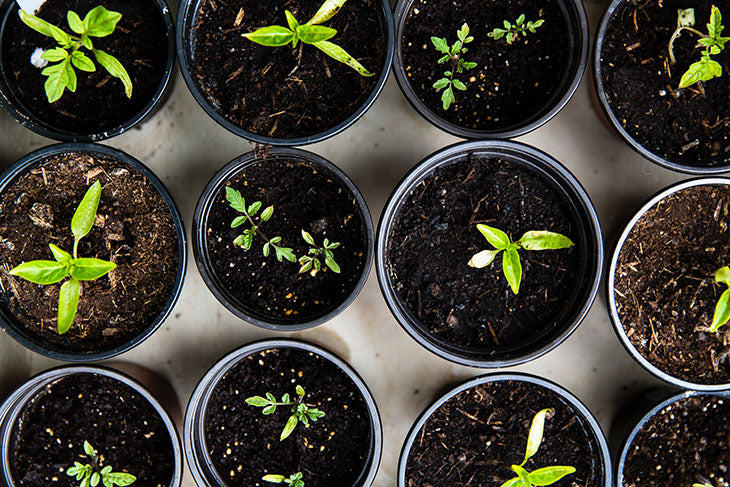
Anyways when you say gardening, you also think… Compost! The elusive "black gold", golden ticket, magic maker, natural garden booster. Whatever you call it, you know that if you are growing your garden naturally that compost is your one-way ticket to bigger plants and a better garden. We have all heard so many rumours about how the only way to grow a garden better is to use organic fertilizers, but even those claiming to be "natural" or "organic" can be bad for the environment and many have added chemicals. Whereas compost is super-natural.
Now, you might be thinking that composting is difficult or can't be done. But we are going to let you in on our secrets to composting, with this beginners guide. You can compost in your backyard, on your balcony or under the sink. You can compost anywhere and it's great for reducing waste in your home.
Composting is one of the best ways to recycle your unwanted organic material. It is a process that takes a few months and breaks down your organic waste, such as vegetables and fruits, egg shells and newspaper. You can use a few different methods, but in the end, you get a nutrient-rich soil for your plants.
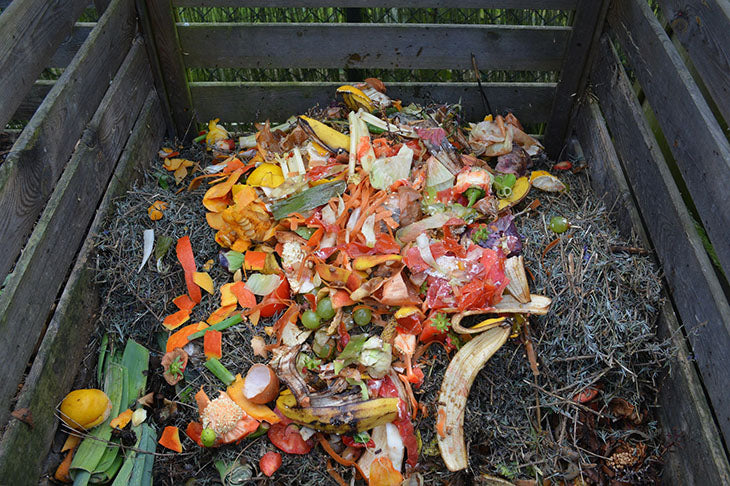
Compost is actually superior for your garden. From side-dressing your plants and top-dressing your lawn to feeding your potted plants and your growing veggies, you can't have enough compost (okay you can, but you know what we mean). This material is great for feeding your future plants and reducing the amount of waste that you throw into the trash.
Did you know: That 58% of food that is produced in Canada is wasted or lost. On the consumer level alone, Canadians waste over 2.38 million tonnes of food.
Compost works by breaking down a mixture of two types of material - green organic material that is nitrogen-rich and brown material that is carbon-rich (we'll get to what these are in a second). This mixture is then decomposed.
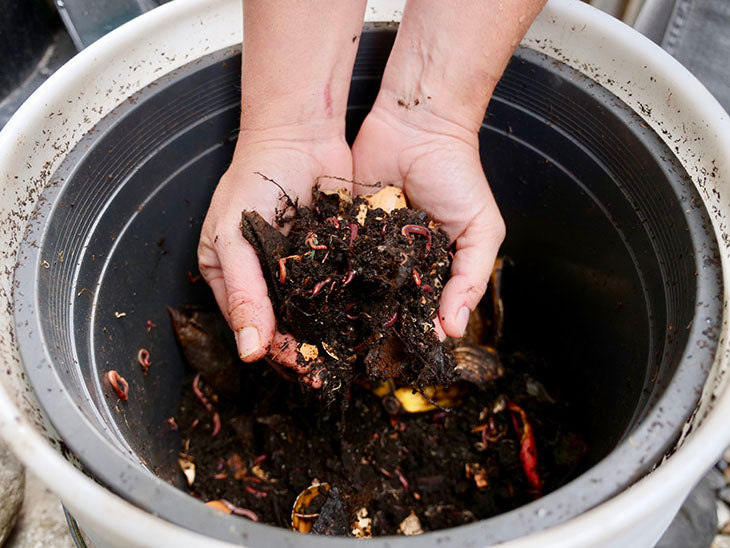
There are actually two main types of decomposers that you can use to compost and change your organic material into the soil. The first are microbes that thrive in a compost bin because there is an abundance of water, heat and oxygen. The second are macro-organisms, such as worms and other decomposers (like centipedes and ants - but we don't add these to household compost) that actually eat and chew the mixture.
What is a microbe? Microbes are actually microorganisms such as bacteria, fungi and actinomycetes. These microbes are crucial for items in your compost pile to decompose and turn into soil. These are actually called "chemical decomposers" because they change the chemistry of an item to turn it into soil.
There are two common types of household compost and they both have a little different process to them. For one, you use worms and the other, you rely solely on microbes in the soil you use.
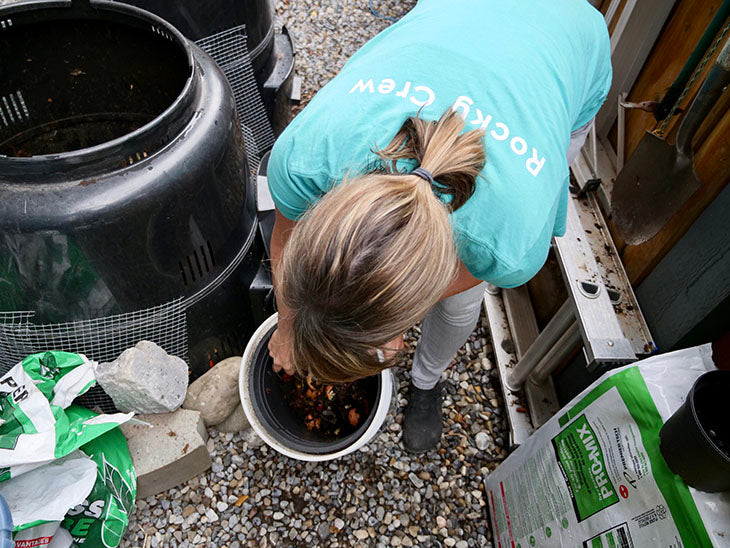
The two most common types of household composting are:
Vermicomposting: This is the type of composting that is most common. Vermicomposting uses red worms (and yes, they have to be red worms) to eat and digest your organic material. A mature bin with 1000 worms can actually eat half a pound of organic material a day.
On-Site (Traditional) Composting:This type of composting relies on the movement of the dirt for aeration (adding oxygen), and hard-working microbes. This is a great type of composting if you live in an apartment or space is scarce. You just need a bin!
You need a combination of green and brown material in your compost. The green material should be your organic material and should contain your food waste and usually has some water content. As for your brown material, it needs to be dry and be filled with carbon-rich material. You need to mix these carefully and add water when necessary. It is a careful balance, but you want your pile like a damp sponge. If you have too much of your green ingredients, just balance it with a nice mix of brown, and vice-versa.
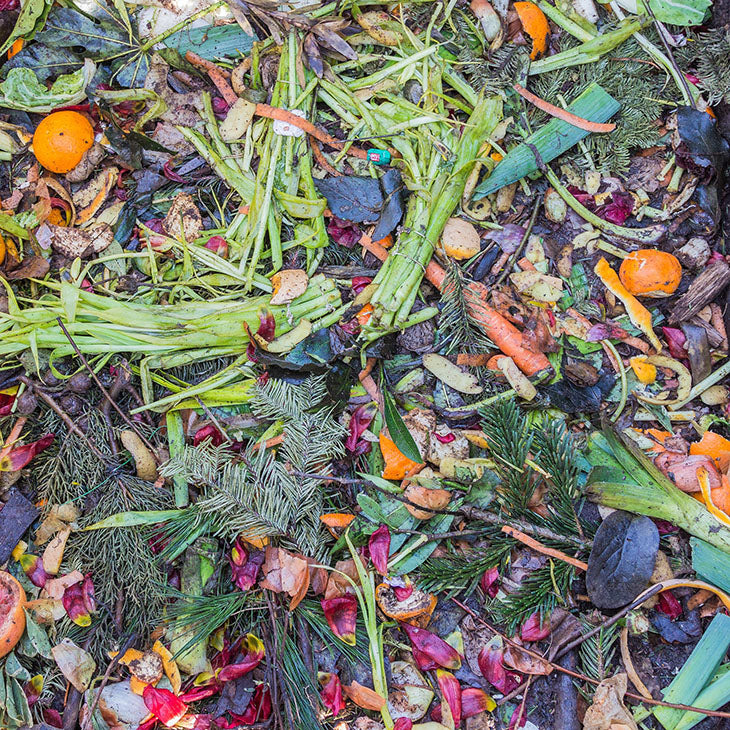
Green Material:
Brown Material:
What Not to Compost:
To start any type of composting, you need to create a compost bin. You can buy these at most homewares stores, but you can also create your own out of an old garbage can if you poke holes in it (even a few in the bottom to make sure it doesn't get too wet). Alternatively, if you have room outside, you can create a whole pile of compost.
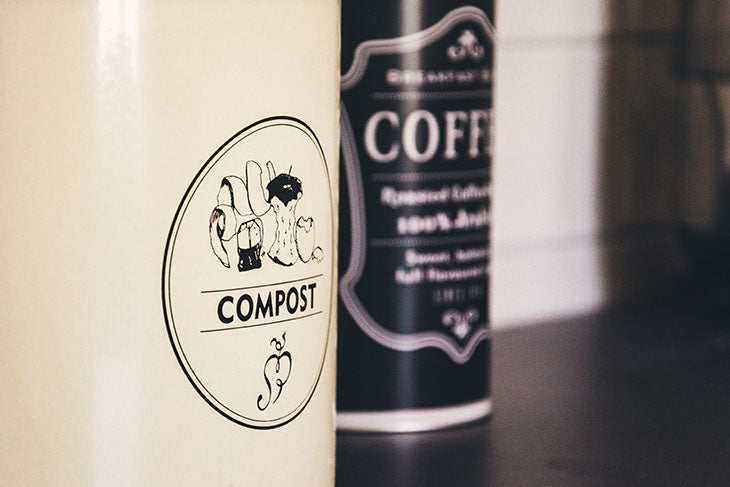
Helpful tip: If you are indoor composting, or outdoors and using a bin, make sure you put a tray under your bin to collect excess liquid or anything you drop.
When it comes to on-site (traditional) composting, you need to keep a nice mixture of materials and then every few days you need to churn it with a shovel or trowel. This will help your compost decompose faster because you are getting more oxygen through the mixture. You want to have a mixture of green and brown material that is wet. On top, you need to cover your whole compost with either damp brown material like newspaper or soil or compost. This will help it not smell too.
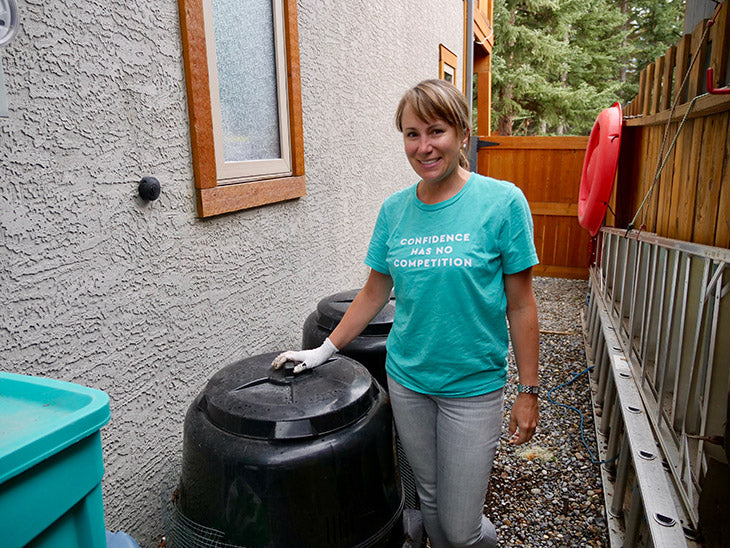
Rocky staff like our own Isabelle know how beneficial composting is!
How long does this take? Traditional composting takes anywhere from 6-12 months to break down your organic material.
Now, getting started with vermicomposting is actually easier than it sounds. Yes, you need to buy some worms (they have to be Red Wrigglers) but that is actually one of the easiest parts. This type of composting can be done inside or outside, which makes it great for everyone. You want your Red Wriggler worms to always be under the bedding. If the bedding is dry, you can wet it down with a spray bottle, as you want to keep it like a wrung-out sponge. Remember that your Red Wrigglers are vegetarians too, so feed them lots of veggies and fruits and in different places in your compost bin.
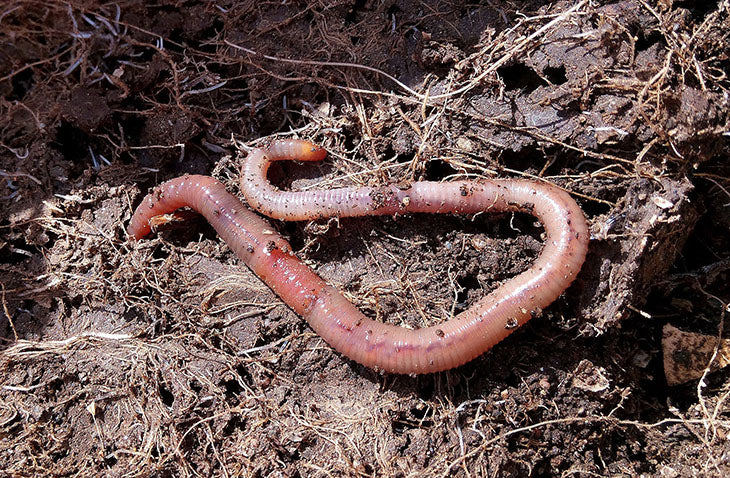
Helpful Tip: Make sure to limit the number of onions, garlic and coffee grinds you put into your compost. This can make it too acidic. You also can't compost wood chips. Worms also do not like citrus, so avoid when possible.
How long does this take? Vermicomposting takes anywhere from 3-6 months to break down your organic material.
To ensure that your worms don't die, follow these tips:
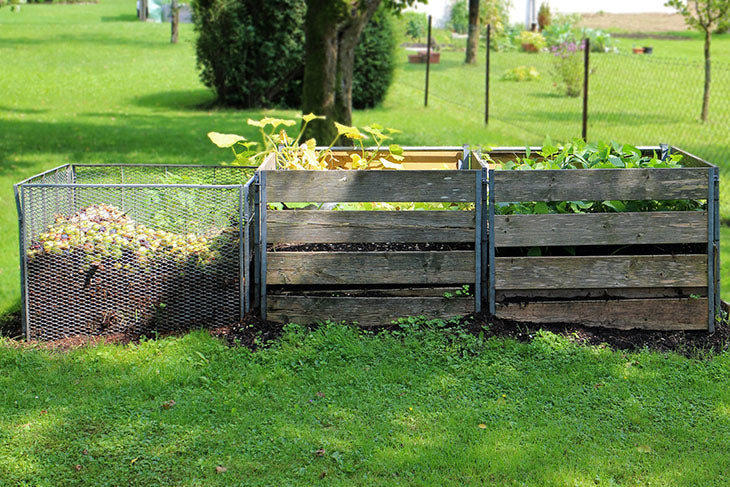
When the organic material has completely broken down, your compost is ready to use! You've now got great black gold that you can put through your garden, grass and potted plants. If you take a worm with you that's okay, but try to move your compost to the side before removing it to allow any worms to go into the area with food.
Comments will be approved before showing up.